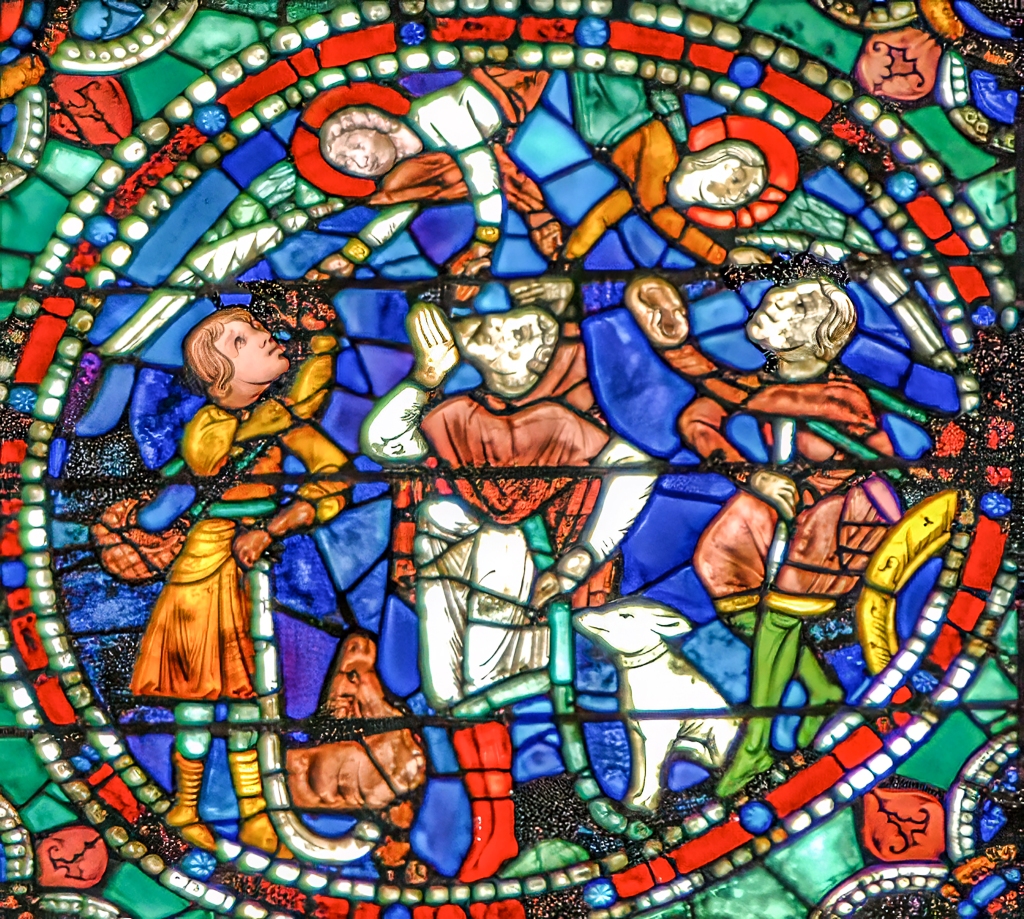“In that region there were shepherds living in the fields, keeping watch over their flock by night. Then an angel of the Lord stood before them, and the glory of the Lord shone around them, and they were terrified. But the angel said to them, “Do not be afraid; for see—I am bringing you good news of great joy for all the people: to you is born this day in the city of David a Savior, who is the Messiah (Christ), the Lord.”
Luke 2:8-11 (NRSV)
Every year at Christmas time, these beloved verses from the Bible are read in some 37 million churches and in countless Christian homes all over the world. They concisely express why Christians celebrate the birth of Jesus year after year and why he is the focal point of their faith. In fact, the Greek verb, euangelizomai, which is translated, “bring good news” in verse 10 is a cognate of the Greek noun, euangelion, which is usually translated “Gospel” (literally, “good news”). In other words, the good news of the Christian Gospel, which has been preached and throughout the world over the past 2000 years, has its roots in the angel’s “good news of great joy for all the people,” the birth of Jesus.
Yet, as I sit in the comfort of my relatively safe and secure home in Minnesota, surrounded by all the privilege and material abundance of the American context, I can’t help but wonder how these verses sound to the millions of people in my own country and elsewhere around the world who must suffer daily from hunger, deprivation, or violence. I’m thinking about those who are abandoned, neglected, alienated, or simply alone without loved ones and friends at Christmas time. I’m imagining what it must be like for the 100 million internally displaced people and refugees who live in war-torn countries such as Ukraine, Myanmar (Burma), the Democratic Republic of the Congo, Gaza, Sudan, Syria, and other such places, some of whom have been or are my students. Amid such terrifying, unstable, or oppressive conditions, is there any “good news of great joy” for them? Is this Gospel message really for “all people” or only for those fortunate enough to live in peace, abundance, and security?
To answer these important questions, we have to get back to what the angel meant by “good news of great joy” and to what we can learn by observing the response of the shepherds to this good news.
In context, according to the Jewish writers of the New Testament, Jesus’s birth was the supreme moment in history when God fulfilled his promise to send a Savior to a troubled world. However, he didn’t arrive as a king, a political mastermind, a great warrior, or super-hero. Jesus identified with the most disadvantaged and beleaguered people in the world by living in poverty and suffering unjustly. Jesus was “God-with-us” (Immanuel), who experienced the same pain of discrimination, oppression, and mistreatment that afflict so many around the world.
Amid such difficult circumstance, Jesus lived with integrity, courage, faith, and compassion despite how he was mistreated and the obstacles he had to overcome. Even though he was forced to die a hideous and cruel death, he did not shrink back from his faith or devotion to God the Father. Evil-doers could and did take his life, but they couldn’t touch his soul. They could nail him to a cross, but they couldn’t keep him from changing the course of history and giving hope to billions of people globally.
In other words, Jesus’s birth was good news of great joy for all people because of what it signified about God’s faithfulness and what it announced about God’s intentions to provide a way of salvation through Jesus, despite our circumstances.
- By God’s incarnation in the form of Jesus Christ, God became one of us, identified with the suffering of humanity, and showed us the way forward.
- By Jesus’s teaching, we understand that the most important thing in life is to seek to know, love, and serve God with all our beings and to love our neighbors as ourselves.
- By Jesus’s death, he demonstrated the extent of God’s love for us and invited us to share in his life and love through faith and obedience.
- By Jesus’s resurrection, God proved that there is life after death and thus hope for all those who follow Jesus.
The overall message of Jesus’ life, teaching, death, and resurrection is clear: We need not be crushed by distressing circumstances and suffering. Even the most tragic life can be so much more than the sum of the injustice, misfortune, and suffering that we may have to endure. We can choose how we are going to be in the world and how we are going to respond to our troubles. By keeping our eyes on Jesus, we can face our adversity with greater strength and courage. And when we reach our limits, and even stumble and fall, Jesus is there to show us the way to get back on our feet again. And when we cannot even get back on our feet again, Jesus does for us what we cannot do for ourselves. He saves us.
I don’t know how much of all this the lowly shepherds would have understood when the angel announced good news of great joy that first night in the fields. But they didn’t need to understand it all at once. They simply needed to believe that God did in fact have good news for them of great joy. And they needed to start looking for Jesus.
This Christmas, I cannot guarantee for myself or anyone else that the day will be merry or that the year ahead will be better than the year just finishing. However, because of the birth of Jesus, we have a Savior, who is Christ the Lord. Despite our circumstances, there is always good news of great joy worth celebrating.
*Photo credit for two images: ©Jill K.H. Geoffrion https://jillgeoffrion.com/


